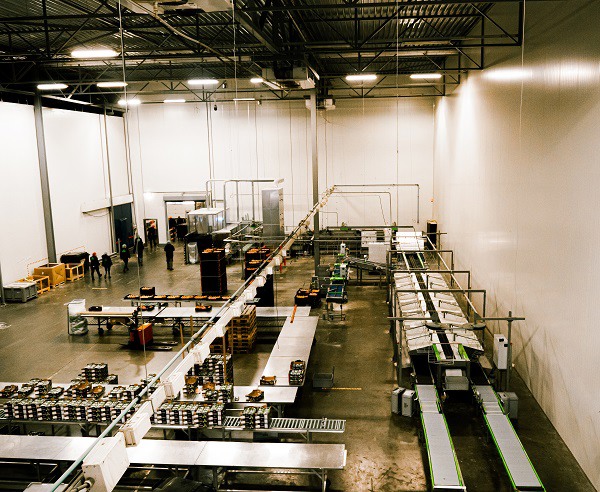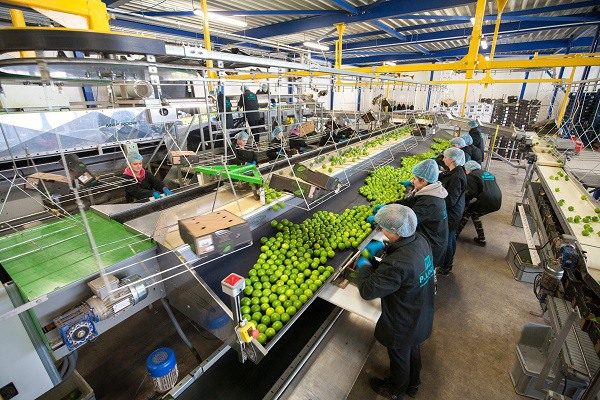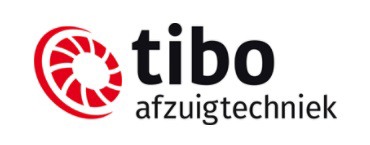Retailers no longer accept inferior citrus, says Looije Packing's René Tunker. This zero-tolerance policy means this Dutch company has become an automated citrus washing specialist. 'Dustballs' release mold spores called endotoxins.
These are meticulously extracted in this process. Any spores still present on healthy fruit are then rinsed away with water. So, the citrus washer gets rid of almost all spores. The washed fruit's shelf life is extended too.
"Compared to hand-washing, this is an extremely efficient, effective way of working. The end results are also far better. This citrus is really clean. With manual washing, you remove the molds that are visible to the naked eye."

"This washing system removes up to 95% of the spores. It's, therefore, undeniable that the fruit remains good for longer. Manual and automatic washing costs the same, but machine washing has much better results," says René.
Looije was the first packaging service provider to focus on the automated washing of overseas citrus. They use a technique that MAF Roda developed for Spanish citrus. "We've been working with an automated citrus washing line at a client's site since 2014. So, we've gathered a great deal of knowledge and experience. More of our clients showed interested in this. Last year we, therefore, bought our own system."
Fine dust extraction is crucial
The process is known as citrus washing. It, however, uses minimal amounts of water. The citrus isn't washed in a water bath like apples and pears. It's cleaned using a misting system, so there's very limited water consumption.
At one end of the line, boxes or bins of citrus are empties on the line. The inferior quality ones, the so-called 'dust balls', are removed by hand. "A fruit that has green or blue mold immediately releases huge dust clouds if it's among the other fruits. This dust contains endotoxins too, and it settles everywhere," Tunker explains.
"That's, of course, terrible for the staff's health. They get respiratory complaints and headaches. But it also affects the machine's operation. If we don't extract this, the whole area turns green within a week." This means this packaging company can now meet its clients' quality requirements.
The extraction system is, therefore, a vital part of the citrus washing line. The first part of the line is enclosed in a dust tent. The fine dust that is released is extracted from above and captured by filters. This prevents it from spreading through the air and employees from inhaling it.
The filters are cleaned using compressed air, and the fine dust is collected in a closed central container. The 99.9% clean air is then returned to the processing hall. Tibo Afzuigtechniek developed this process.
The citrus is cleaned using a combination of air and water vapor. It's then brushed and dried. After that, the clean fruit moves through the automatic sorting section in rotating cups. HD cameras take as many as 12 photos of each fruit. These capture the citrus from all sides.

Thanks to infrared bulbs, the cameras can detect the smallest mold spots or exterior defects like peel damage. They can also be used to color-sort the fruit. The machine then weights the fruits. Once all this is done, the citrus is sorted by class using a singulator. Finally, it's repackaged.
"Depending on the product and requirements, we can process four to five tons of citrus per hour. You need a much smaller workforce than with manual washing. There are only 12 to 16 people on the line. We can immediately repackage the washed fruit as per client specifications - in boxes, net bags, or flow packaging. We can do that onsite, which is a huge advantage," continues René.
Can wash avocados and organic products too
The cleaning system is suitable for all kinds of citrus. It can be used for oranges, mandarins, lemons, grapefruit, and lines. Avocados have similar issues to citrus. So, this machine can also wash these. Avocado crowns are particularly susceptible to fungi. Putting them through this system seems to deter that effectively.
The Spanish season is now well underway. Things, therefore, tend to quiet down a little for overseas fruit. It's time to make plans for the future. "The processing of overseas fruit has only increased in recent years. Not only for conventional but organic fruit too. In principle, these fruits are washed in the same way."
"The machines must just be cleaned very thoroughly when you switch between these. That makes it more challenging to plan in organic fruit processing. That's why we've decided to use our one washing line purely for organic fruit from next year. We'll have a second line at another location. We'll use that one for the conventional produce," concludes René.
 Voor meer informatie:
Voor meer informatie:
Rene Tunker
Looije Packing
Honderdland 177
2676 LT Maasdijk
Tel: +31 174 523 202
Mob: +31 657 437 236
Rene@Looijeagf.nl
www.looijeagf.nl
 Tibo Afzuigtechniek
Tibo Afzuigtechniek
Agriport 36
1775 TB Middenmeer
T: +31 (0)229 262371
info@tiboafzuigtechniek.nl
www.tiboafzuigtechniek.nl
